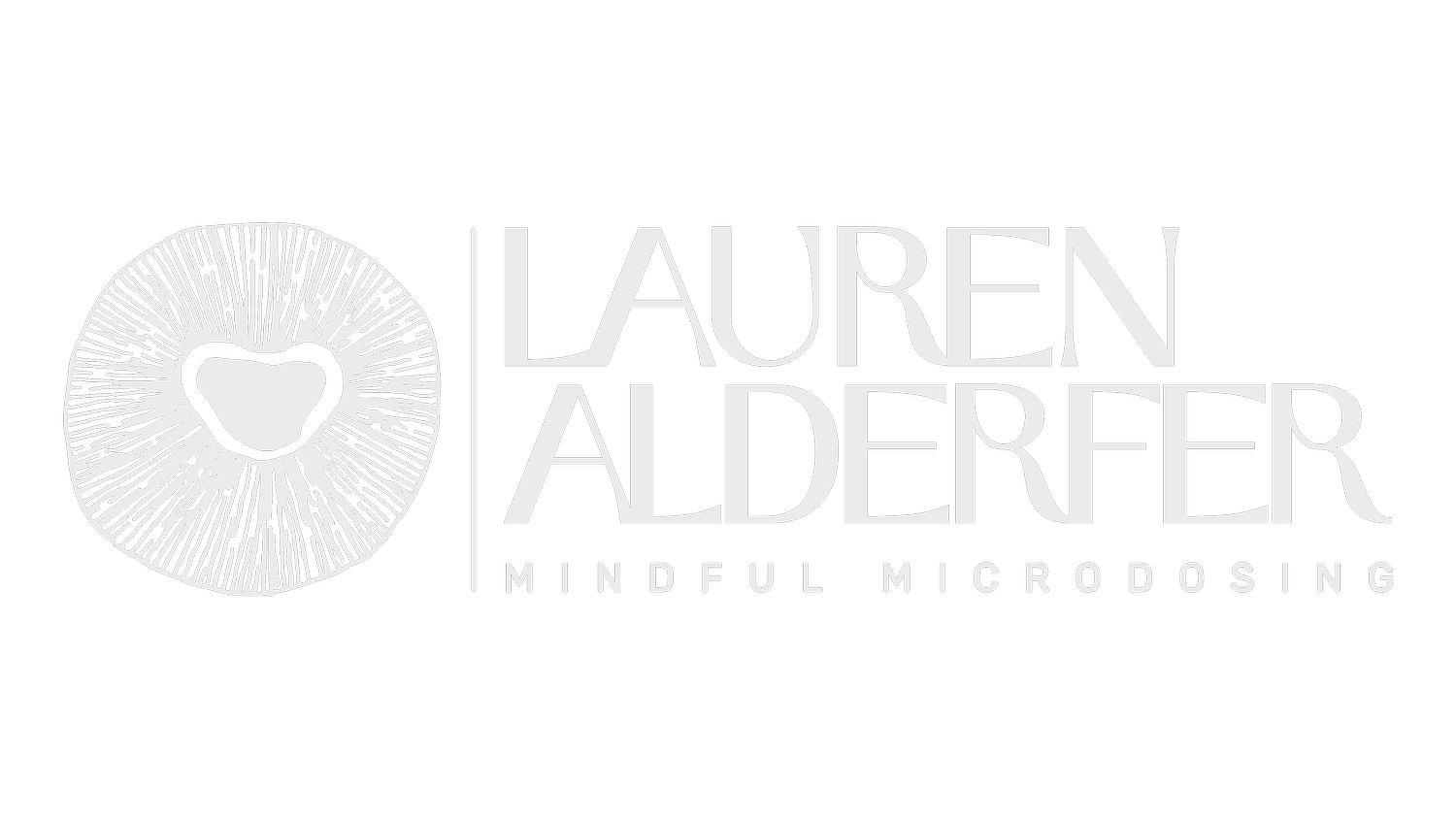A Mindful Approach to Dementia & Psychedelics: Our Shared Journey Series - Microdosing and Dementia
It is no wonder that microdosing is showing promise for myriad health-related conditions. In the well-researched book Microdosing for Health, Healing and Enhanced Performance, the co-authors James Fadiman and Jordan Gruber cite over 30 specific health concerns microdosing has benefited. Reducing stress and anxiety is commonly reported; in fact, these symptoms, along with depression, are being studied at Johns Hopkins for those with dementia. Microdosing for seniors is not only the new mindfulness; it also provides therapeutic value for aging baby boomers.
So let’s look more closely at microdosing for dementia. Many people come to me for mentorship on behalf of their spouse, partner, or loved one who has signs of dementia. Ethically, I only work with people who are cognizant and aware that they are microdosing. That means I do not work with people in advanced stages of Alzheimer’s. However, I contemplate the millions of elderly in advanced stages of various dementias taking allopathic medications, totally unbeknownst to them. The medications are intended to ease certain symptoms—both psychological and physical. Would microdosing be any different?
What I would like to share are the observable effects as well as Henry’s input into our own personal situation. At one point, Henry had stopped reading, was thrashing in his sleep, and his energy and endurance were short-lived. When he started microdosing, within two weeks, people would remark that Henry seemed “more present.” He himself told his siblings and others that he felt better, that he could not explain it, but that he felt “more himself.” In a conversation I had with Jordan Gruber, he concurred that over years of collecting data, that is what James Fadiman kept finding in his research; namely, people with [early] dementia seemed “more present.”
More benefits were noted within the first weeks of Henry microdosing. It was with great joy that he began picking up his books, reading for up to several hours at a time. The other huge change was sleeping soundly through the night. The benefits of sleeping soundly for eight hours at a time cannot be underestimated. Henry’s physical endurance increased. He could be on his feet for longer stretches before tiring. Increased cognition was evident in conversation, household chores, and keeping up with daily news.
Sharing these fairly immediate observable benefits from microdosing does not imply the disease is halted. In the last two years, there continues to be a steady decline in cognition, physical skills, and endurance. Microdosing is not a magic bullet. But it has been a valuable support along the way…and it continues to be. Henry continues to microdose, and he reports how it helps him sleep and feel better in a general sense.
So why microdose with the first signs of dementia or early-stage Alzheimer’s? I do believe it has given a greater quality of life, even as decline continues. As part of the quality of life is my firm belief that mindful awareness of the state of one’s heart is of utmost importance before cognition is no longer available. This includes, but is not limited to, being at peace in one’s marriage and/or in other relationships. Of greatest importance is to be at peace in one’s heart. In fact, the late psychopharmacologist and pioneering psychedelic researcher Roland Griffiths, through the Johns Hopkins Psilocybin Research Project, studied how psilocybin can be used to create spiritually meaningful, personally transformative experiences, especially with the terminally ill.
Indeed, Henry’s path led to three psychedelic experiences beyond microdosing mushrooms. One experience in particular, in which Henry embodied a oneness even beyond his blissful experiences in meditation, led to a softening of the heart (more details in a future blog). It is a more palpable peacefulness he now lives with and that accompanies him in this journey of Alzheimer’s and ultimate death. Henry has a heart at peace. Indeed, the life of the heart is the focus of my attention in trying to provide an emotionally safe, supportive, and peaceful environment for Henry. However, most people think of quality of life in relation to daily life and how one’s time is filled. And so, yes, that is important too. For the outer world also impacts the inner world of the heart.
That brings me to reflecting on our recent arrival near San Miguel de Allende in Mexico. We are much more settled in and ready for the three months ahead. In these last two weeks, we have seen babies being carried by young mothers, working professionals, children playing, vibrant seniors, and kind “helpers” pushing wheelchairs through the gardens and under the shade of the trees in this eternal spring-like clime. Genuine hellos, buenos días, or even hugs are given to those with moderate or advanced dementia. We have found ourselves in an environment that breathes humanity, care, and connection. Certainly, this is an ideal community in which a person in the process of cognitive decline as well as their caregiver can live with dignity, peace, and quality of both inner and outer life.
- Lauren Alderfer, PhD.

